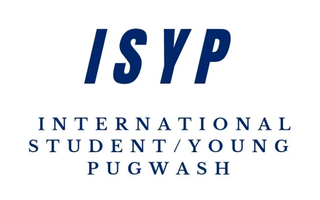Chapters are pretty nifty: they can get formal recognition and funding from educational institutions, they spread the load of the volunteer effort needed to hold programs, and they provide a built-in audience for low-key events when everyone is too busy to do anything elaborate—otherwise known as the "Netflix documentary and ordering of pizza" evening, or a happy hour debate at a local pub. And they make clear to everyone else where there are foci of Pugwash activity already in place.
But chapters require steady recruitment of new members, so let's face it: sometimes they work, and sometimes they don't. We take them where we can get them, and we'll help you to organize one if you wish—but it shouldn't be seen as a requirement. We want chapters where their organizers see such work as a privilege and a pleasure, not a responsibility.
So we recognize several different kinds of chapters:
- Established: where there's the time and willingness to organize an old-school chapter and get recognition from an educational institution, excellent. (You have to let us know before you proceed with that, but we're very unlikely to tell you no.)
- Informal: where such recognition is difficult to get, beyond the time commitment of those involved, or simply not relevant (i.e., the Rotblat chapter of Northwest Springfield, or a monthly talk at your workplace), we'll recognize a chapter wherever we have members meeting semi-regularly and taking notes about what they're doing.
- Startups: the core minimum to say "we have a chapter starting" at a given location or institution is one person willing to be the coordinator. Ideally, two or three. But it doesn't take much.
- Virtual chapters: finally, in places where we don't have a chapter, we partner with other student organizations and nonprofits to co-sponsor their events that overlap with our mission. Find out more here.
In short, where there are interested (and interesting) people meeting to talk or do Pugwash, we're happy to call you a chapter.
Advantages of being a chapter, as opposed to an ad hoc collection of individual members: by and large, you're free to hold your own events without supervision from other parts of Pugwash. We'll ask you to put your events into our online calendar for the record (and if you want to upload materials from the event, even better), and we might tap you on the shoulder if your events don't fit the Pugwash approach the way they should. But the main advantage is that Pugwash chapters are where Pugwash ideas spring forth, and our chapters are first in line for the resources that might make such ideas a reality—because chapters make both the work and the audience gathering easier.



